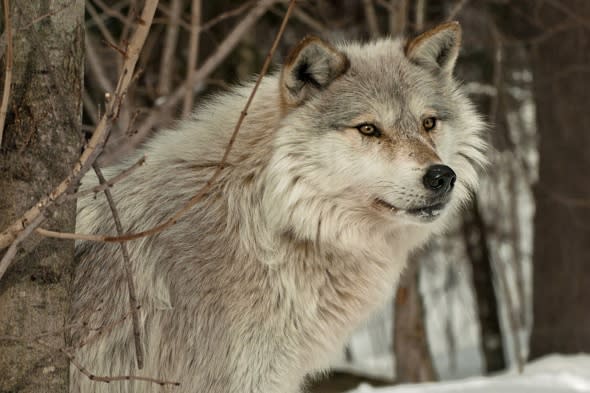Wolf hunt resumes in France after increased attacks

There has been an outcry from animal rights groups after wolf hunts have resumed in France following increased attacks by the animals after their "European comeback".
The Daily Telegraph reports that hunters, "wolf lieutenants", and local farmers have grouped together to carry out a cull on the animals after sheep farmers complained of incessant attacks on their flocks.
Camera traps have caught images of the wolves carrying out the attacks.
And the location of the attacks will come as a surprise to many, being just 25 miles inland from the top tourist spot of Nice on the French Riviera, and just 15 miles from Grasse, known as France's perfume capital.
The hills in this region of the Var, called Caussols, have lost around 100 sheep to the grey wolf.
The animals were hunted to extinction by farmers in France back in the 1930s, but in 1992 a mating pair crossed the border from Italy.
There are currently throught to be around 300 individuals in 25 packs across France.
More than 6,000 sheep were lost to these wolves last year alone.
The wolf is actually a protected species under European law, but culls can take place in exceptional circumstances when attempts to protect local livestock fail.
The government plan ruled that 24 wolves could be removed per year.
Conservation groups have been up in arms over the ruling, with one saying: "To return to wolf hunts as if we were in the Middle Ages is scandalous. That the local authorities are organising them is even worse."
He added that "blindly shooting wolves" will have no effect on protecting sheep, and that other means of protection, including the use of fierce "patou" mountain dogs, and penning sheep in electrified fences, should be utilised.
However, locals argue that these means are ineffective. Pierre and Deborah Courron, who own 900 sheep and goats near Caussols, have tried the methods, and have even slept beside flocks in the summer months. They lost 60 animals last year and have suffered eight attacks in 2014.
Mrs Courron said: "We already have four patous. If I had 15 of them, we would doubtless have no wolf attacks, but a pack that big would pose a threat to humans as they are semi-wild. They would make mincemeat of hikers."
The wolf problem is not confined to France Over in Sweden, the wolf hunt was reintroduced in 2010, the first in the country since 1964.
But the 2014 hunt, which was due to start in February, was called off by Stockholm's Administrative Court.
This year's cull had originally had a target of up to 30 wolves.But was cancelled again for the third year in a row after protests by conservation groups.
There has not been a wolf hunt in Sweden since 2011. Bo Sköld, secretary general of the Swedish Hunting Association (Svenska jägareförbundet), called the ruling a disaster for Swedes who live in rural areas and encounter wolves on a daily basis.
He told thelocal.se: "We've had three parliamentary decisions on the wolf hunt: 2001, 2009, and 2013. It's clear that the democratic system's ability to manage this issue doesn't work and that means people lose faith in it."
Related articles
Video: Teen viciously attacked by wolf on camping trip
Schoolboy killed by pack of wolves in Siberia




